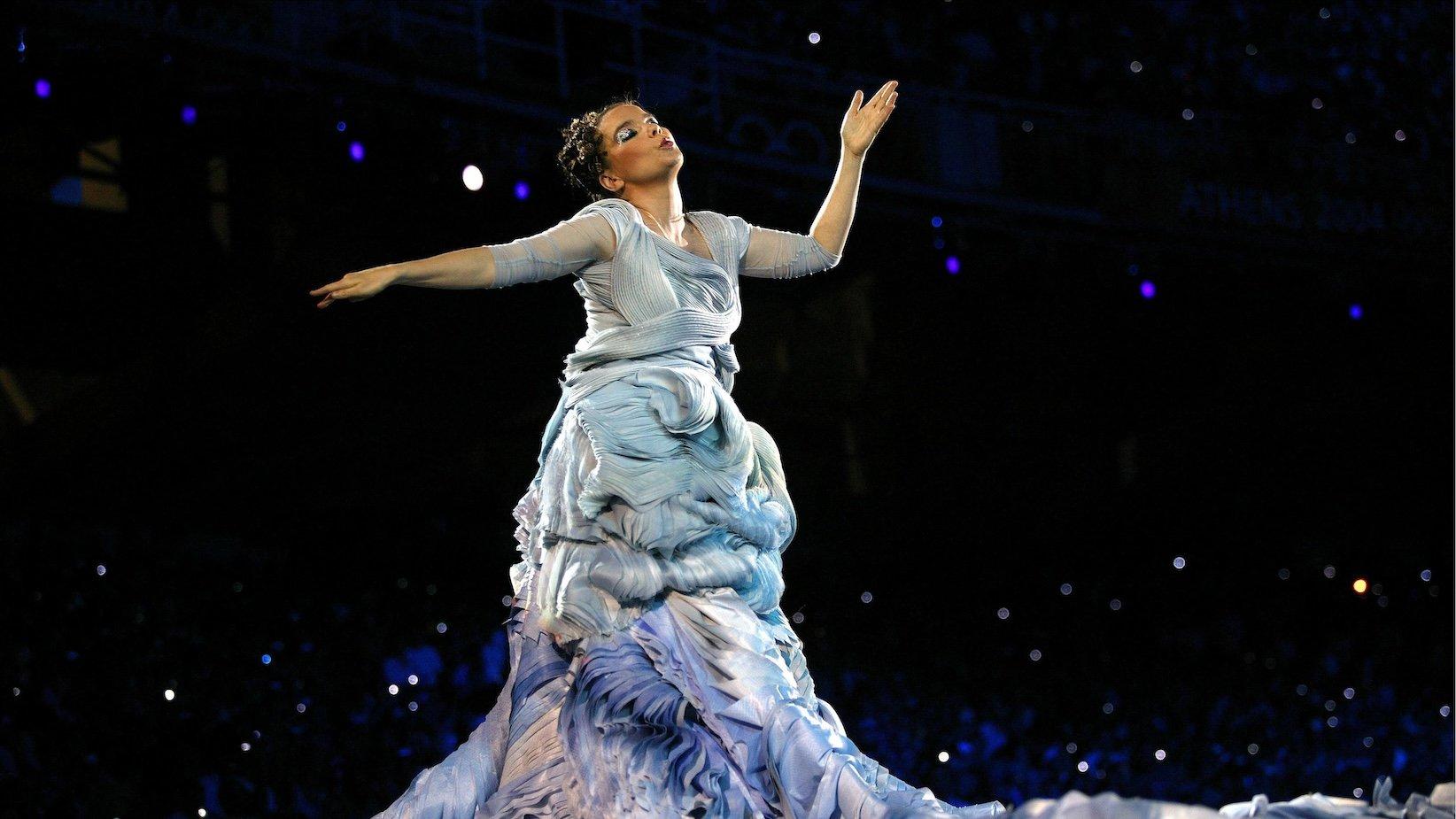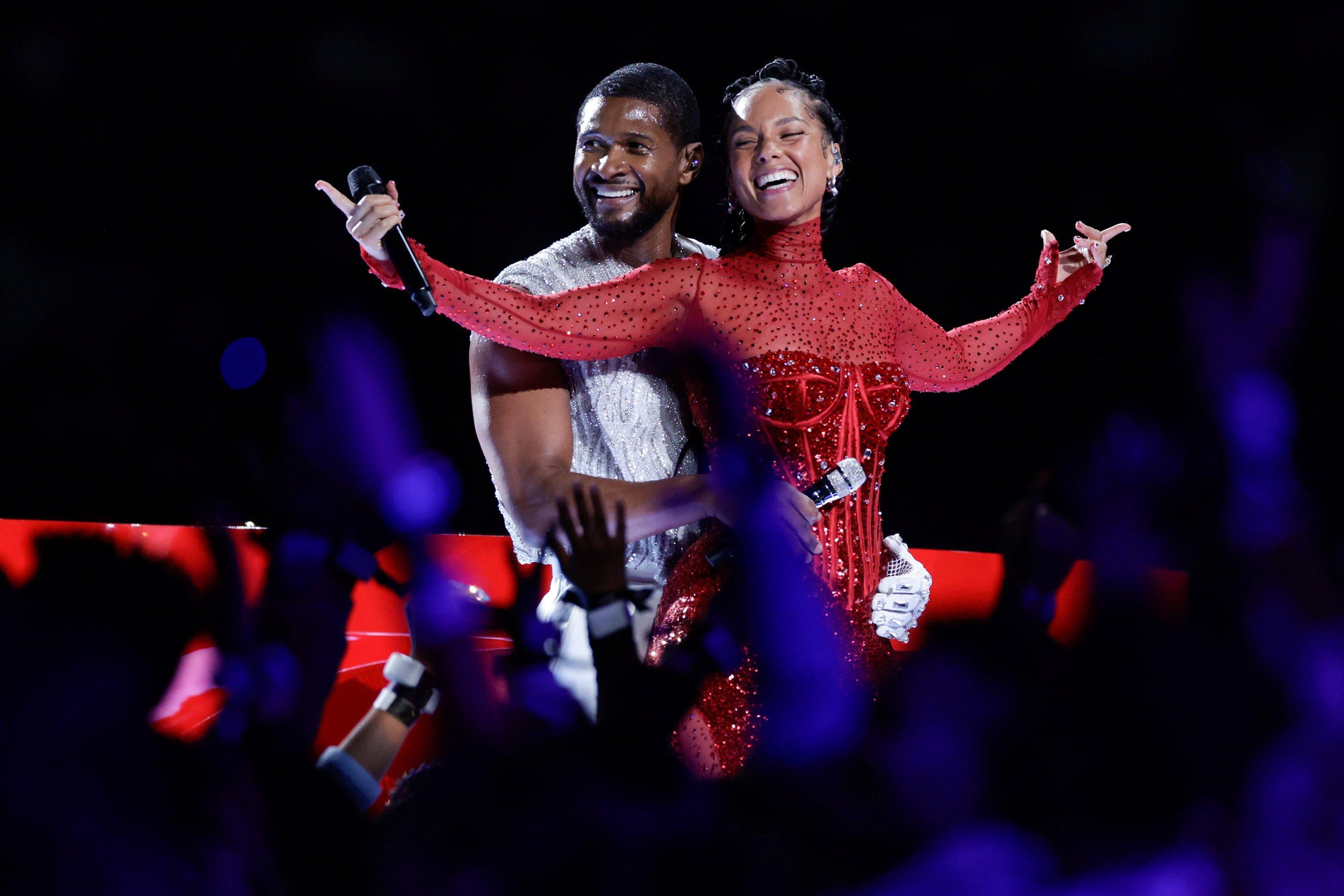Editor's Note: This is an update to a story from 2017.
Without heart-bursting, world-shifting love songs, music wouldn't be the same. There are countless classic and chart-topping hits dedicated to love, and several of them have won GRAMMYs.
We're not looking at tunes that merely deal with shades of love or dwell in heartbreak. We're talking out-and-out, no-holds-barred musical expressions of affection — the kind of love that leaves you wobbly at the knees.
No matter how you're celebrating Valentine's Day (or not), take a look at 18 odes to that feel-good, mushy-gushy love that have taken home golden gramophones over the years.
Record Of The Year / Best Vocal Performance, Male, 1967
Ol' Blue Eyes offers but a glimmer of hope for the single crowd on Valentine's Day, gently ruminating about exchanging glances with a stranger and sharing love before the night is through.
Best Country Vocal Performance, Male, 1983
In this cover, Nelson sings to the woman in his life, lamenting over those small things he should have said and done, but never took the time. Don't find yourself in the same position this Valentine's Day.
Best Pop Vocal Performance, Male, 1983
"Truly" embodies true dedication to a loved one, and it's delivered with sincerity from the king of '80s romantic pop — who gave life to the timeless love-song classics "Endless Love," "Still" and "Three Times A Lady."
Best Pop Vocal Performance, Male, 1991
Orbison captures the essence of encountering a lovely woman for the first time, and offers helpful one-liners such as "No one could look as good as you" and "I couldn't help but see … you look as lovely as can be." Single men, take notes.
Record Of The Year, Best Pop Vocal Performance, Female, 1994
Houston passionately delivers a message of love, remembrance and forgiveness on her version of this song, which was written by country sweetheart Dolly Parton and first nominated for a GRAMMY in 1982.
Celine Dion, "My Heart Will Go On (Love Theme From Titanic)"
Record Of The Year, Best Female Pop Vocal Performance, 1999
This omnipresent theme song from the 1997 film Titanic was propelled to the No. 1 spot on the Billboard Hot 100 as the story of Jack and Rose (played by Leonardo DiCaprio and GRAMMY winner Kate Winslet) swept the country.
Best Female Country Vocal Performance, Best Country Song, 1999
Co-written with producer and then-husband Mutt Lange, Twain speaks of beating the odds with love and perseverance in lyrics such as, "I'm so glad we made it/Look how far we've come my baby," offering a fresh coat of optimism for couples of all ages.
Best R&B Performance By A Duo Or Group With Vocals, 2005
"There's always that one person that will always have your heart," sings Usher in this duet with Keys, taking the listener back to that special first love. The chemistry between the longtime friends makes this ode to “My Boo” even more heartfelt, and the love was still palpable even 20 years later when they performed it on the Super Bowl halftime show stage.
Bruno Mars, "Just The Way You Are"
Best Male Pop Vocal Performance, 2011
Dating advice from Bruno Mars: If you think someone is beautiful, you should tell them every day. Whether or not it got Mars a date for Valentine's Day, it did get him a No. 1 hit on the Billboard Hot 100.
Best Traditional R&B Performance, 2012
It's a far cry from his previous GRAMMY-winning song, "F*** You," but "Fool For You" had us yearning for "that deep, that burning/ That amazing unconditional, inseparable love."
Best R&B Song, 2014
Timberlake is so high on the love drug he's "on the ceiling, baby." Timberlake co-wrote the track with James Fauntleroy, Jerome Harmon and Timbaland, and it's featured on his 2013 album The 20/20 Experience, which flew high to No. 1 on the Billboard 200.
Best R&B Performance / Best R&B Song, 2015
While "Drunk In Love" wasn't the first love song that won Beyoncé and Jay-Z a GRAMMY — they won two GRAMMYs for "Crazy In Love" in 2004 — it is certainly the sexiest. This quintessential 2010s bop from one of music's most formidable couples captures why their alliance set the world's hearts aflame (and so did their steamy GRAMMYs performance of it).
Ed Sheeran, "Thinking Out Loud"
Song Of The Year / Best Pop Solo Performance, 2016
Along with his abundant talent, Sheeran's boy-next-door charm is what rocketed him to the top of the pop ranks. And with swooning lyrics and a waltzing melody, "Thinking Out Loud" is proof that he's a modern-day monarch of the love song.
Best Pop Duo/Group Performance / Best Song Written For Visual Media, 2019
A Star is Born's cachet has gone up and down with its various remakes, but the 2018 iteration was a smash hit. Not only is that thanks to moving performances from Lady Gaga and Bradley Cooper, but particularly thanks to their impassioned, belt-along duet "Shallow."
Best R&B Performance, 2019
"If life is a movie/ Know you're the best part." Who among us besotted hasn't felt their emotions so widescreen, so thunderous? Clearly, H.E.R. and Daniel Caesar have — and they poured that feeling into the GRAMMY-winning ballad "Best Part."
Best Country Solo Performance, 2019
As Musgraves' Album Of The Year-winning LP Golden Hour shows, the country-pop star can zoom in or out at will, capturing numberless truths about the human experience. With its starry-eyed lyrics and swirling production, "Butterflies" perfectly encapsulates the flutter in your stomach that love can often spark.
Best Country Duo/Group Performance, 2021
When country hook-meisters Dan + Shay teamed up with pop phenom Justin Bieber, their love song powers were unstoppable. With more than 1 billion Spotify streams alone, "10,000 Hours" has become far more than an ode to just their respective wives; it's an anthem for any lover.
Lovesick Or Sick Of Love: Listen To GRAMMY.com's Valentine's Day Playlist Featuring Taylor Swift, Doja Cat, Playboi Carti, Olivia Rodrigo, FKA Twigs & More










